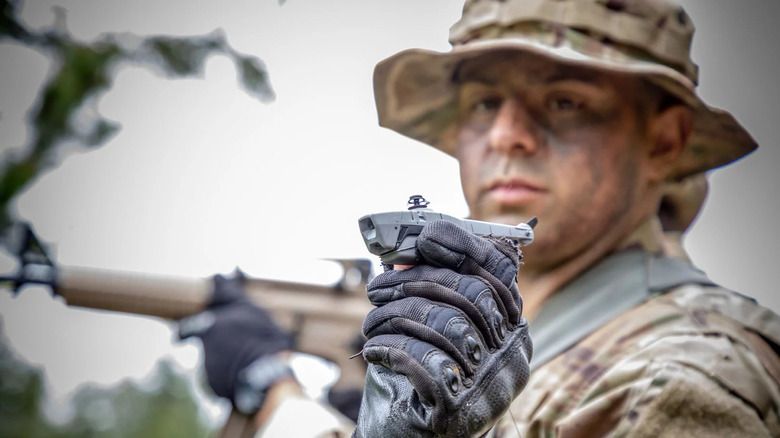This Mini Military Drone Costs Almost $200,000 - Here's Why
"It's the military," so the old joke goes, "it pays more for everything." It's hard to forget that the Pentagon and the United States Armed Forces have been found paying exorbitant prices for common, everyday items, whether that's a $14,000 3-D printed toilet seat lid to $1,280 cups and thousand-dollar pliers. In short, high military spending is nothing new.
Small consumer drones can be purchased for as little as $99. A decent one will typically set you back about $400, with more professional ones running well north of the thousand-dollar mark. These are great for racing through trees, taking incredible panoramic photographs, or stunning videos from previously unseen points of view.
However, the Black Hornet 3 Personal Reconnaissance System has some incredible features that might prove the military is justified in paying a high price for these tiny drones. In 2018, Teledyne FLIR first unveiled the BH3. Soon after, it started winning contracts worth millions from a host of militaries around the world — and for excellent reason. The BH3 gave foot soldiers a high-tech advantage on the battlefield by providing instant situational awareness before they ever engaged in any actual combat.
This tiny Black Hornet can show the way in day or night
Soldiers carry anywhere from 60 to 120 pounds of gear, so any additional equipment needs to be small and weigh as little as possible. With a total weight of 33 grams (1.16 oz) and an overall size of 10 cm by 2.5 cm, service members can pop out the Black Hornet 3 and deploy it in under a minute whenever they need to get eyes on what's ahead of them — no special training required.
This pocket-sized drone can fly for 25 minutes at a time, with a range of 15 miles, but it does not have any payload capabilities. It's equipped with two electro-optical (EO) cameras for use in daylight and FLIR night vision that can transmit both live video (640x480 EO resolution, 160x120 thermal) and HD still images (1600x1200 EO, 160x120 thermal) back to the operator's handheld unit.
The BH3 can be flown manually or via auto-pilot, complete with user-selectable waypoints and an automatic return feature. Moreover, it's designed to give off a very low audible signature allowing it to fly almost silently and thus can be used for clandestine, covert missions.
A new military MQ-9 reaper drone costs $32 million, and while it does have a far different use and range — it's still expensive. Meanwhile, the BH3 "only" costs $195,000 and can be deployed on a much larger scale to help boots-on-the-ground soldiers navigate the battlefield safer and more efficiently.
